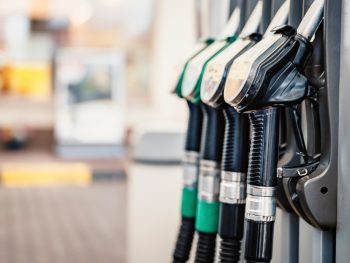The current fuel duty freeze and temporary 5p a litre cut will be maintained for a further year to support working people, Chancellor Rachel Reeves has announced in today’s Autumn Budget.
 The current rate of 52.95p a litre, due to end in April 2025, will continue for the 2025/26 financial year and the Chancellor said: “There will be no higher taxes at the petrol pumps next year.”
The current rate of 52.95p a litre, due to end in April 2025, will continue for the 2025/26 financial year and the Chancellor said: “There will be no higher taxes at the petrol pumps next year.”
Reeves had been widely expected to increase fuel duty after weeks of warnings of difficult decisions to help plug a well-publicised £22bn budgetary ‘black hole’.
Speaking to the House of Commons, Reeves said continuing the duty freeze and cut would lose the Treasury £3bn in revenues.
She added that while this was “a substantial commitment to make”, increasing duty while the cost of living remains high and with a backdrop of global uncertainty, “would be the wrong choice for working people”.
The Government also announced in the Budget it will introduce the Pump Watch mandatory fuel price publication and monitoring scheme from the end of 2025; the first time a date has been put on this.
Fuel duty has been frozen at 57.95p a litre since 2011, reduced to 52.95p after the 5p a litre cut came into force in March 2022.
Fuel prices have fallen in recent weeks following the record highs seen in summer 2022 and the average price of a litre of petrol is now about 135p. Ending the fuel duty freeze and 5p a litre cut would have added 7p a litre to fuel costs.
The RAC said drivers across the UK would “breathe an enormous sigh of relief”.
Head of policy Simon Williams continued: “It’s good to see the Government firmly recognising the importance of the car to millions of households up and down the country. Eight in 10 drivers tell us they are dependent on their vehicles for the journeys they need to make, while 70% of commuters who live in rural areas have no other feasible alternatives to get to work beyond taking the car.
“It’s also worth remembering that even as of today 56% of the total price of a litre of petrol is already tax in the form of fuel duty, and the VAT that is charged on top.”
The AA said the eve of Halloween Budget had “conjured up a treat for drivers”
Edmund King, AA president, commented: “Drivers were worried that pre-Budget scares of hiked fuel duty may end in a nightmare, but the Chancellor has pulled off the ultimate trick and treat.
“Since Covid and the start of the Ukraine war, ‘perma-high’ pump prices have inflicted road fuel costs that were well above anything motorists had endured before. Today’s fuel duty freeze will be a big relief.”
The shock fuel duty freeze was also greeted by the logistics industry, which said the respite was welcome news for a sector already seeing increasing business failures over the last year.
David Wells, chief executive of business group Logistics UK, commented: “The sector operates on very narrow margins – often only 2.5% – with fuel representing a large proportion of the weekly operating cost for hauliers.
But The Electric Car Scheme said ignoring fuel tax in the Budget was “a huge mistake”.
Thom Groot, CEO of the salary sacrifice specialist, elaborated: “We are 14 years overdue for a fuel tax increase, and the subsidising of fossil fuels needs to end if we are to reach our net zero and zero-emission vehicle (ZEV) targets. The £100bn this freeze has cost the treasury so far, invested properly, could have been transformative to the NHS, infrastructure or just the national debt and there is no excuse for extending it.
“This money could be far better spent on levelling the playing field for EV drivers charging in public by cutting VAT to 5%, which would cost just £14m.
“The £22bn black hole that has dominated headlines cannot be filled at the cost of the net zero transition, it would be madness to do so. Not to mention the cost to the NHS of poor air quality and extra funding freed up by ending this subsidy. Introducing a levee on aviation fuel would also increase the tax take and help tackle climate change.”
And Certas Energy said the Government had missed a trick on helping commercial vehicle fleets use HVO (hydrotreated vegetable oil). A drop-in alternative to diesel, HVO reduces emissions by up to 90% compared to standard diesel and can be used without any modification to the vehicle.
Bryan Main, managing director of mobility at Certas Energy, said: “Many of our customers want to use HVO to lower their emissions but find the current price premium a challenge. Today’s budget was an opportunity to make sustainable fuels such as HVO more competitive, by lowering fuel duty on them. It could have had a big impact on the UK’s green transition, decarbonising road transport faster and more smoothly. I think that opportunity has been missed.”

